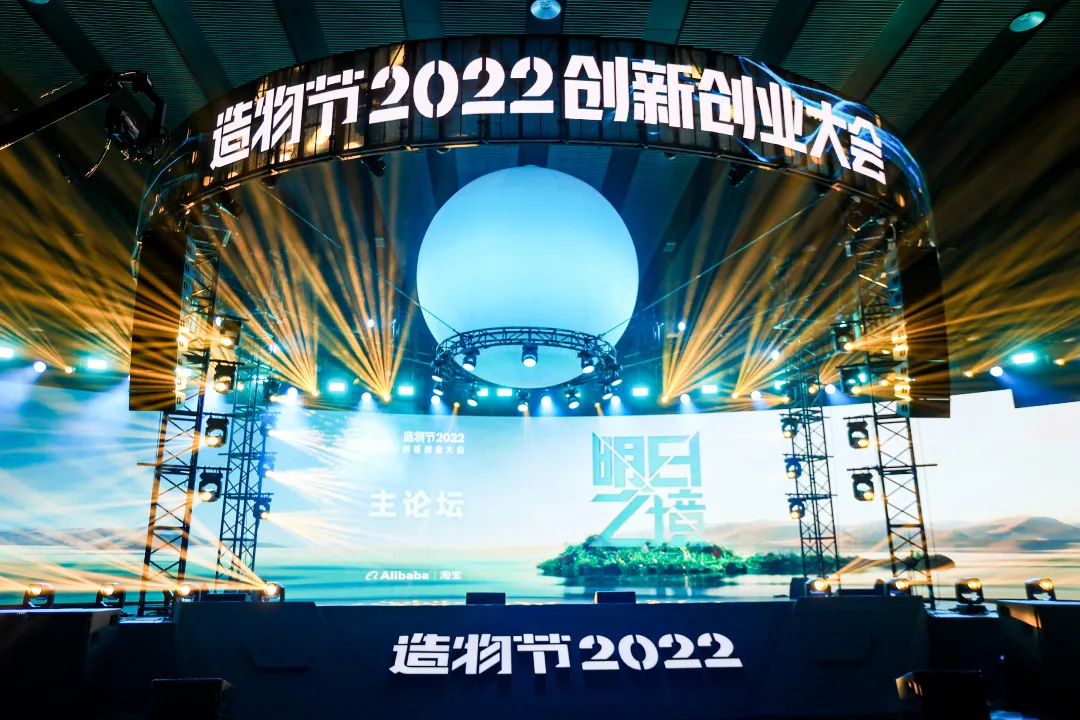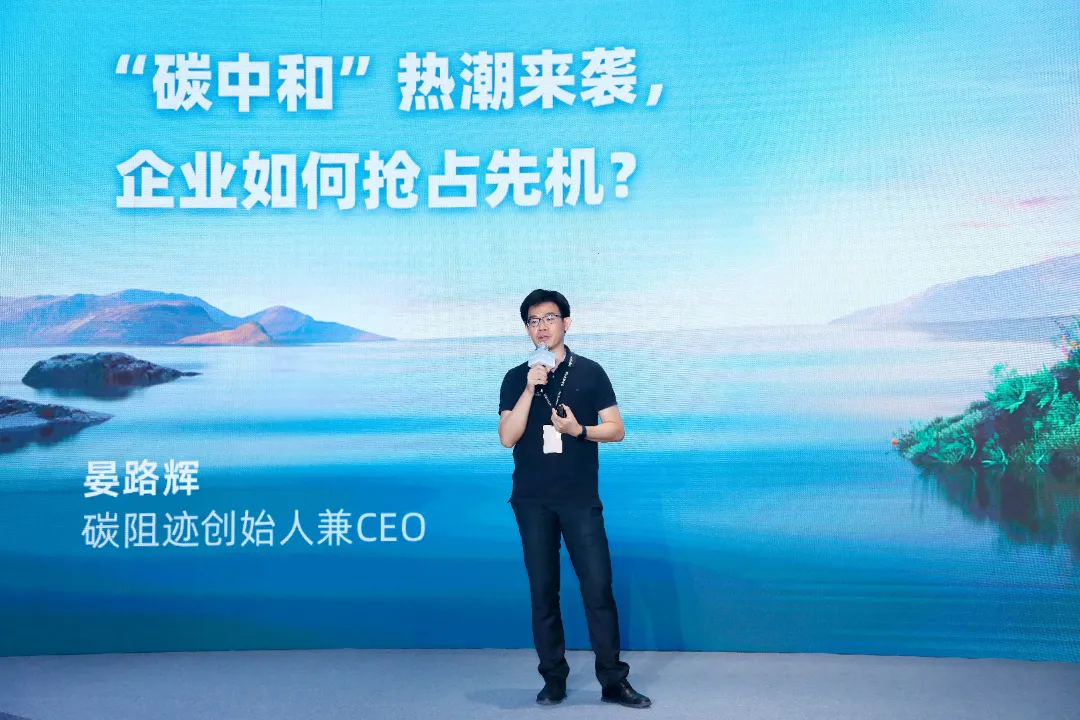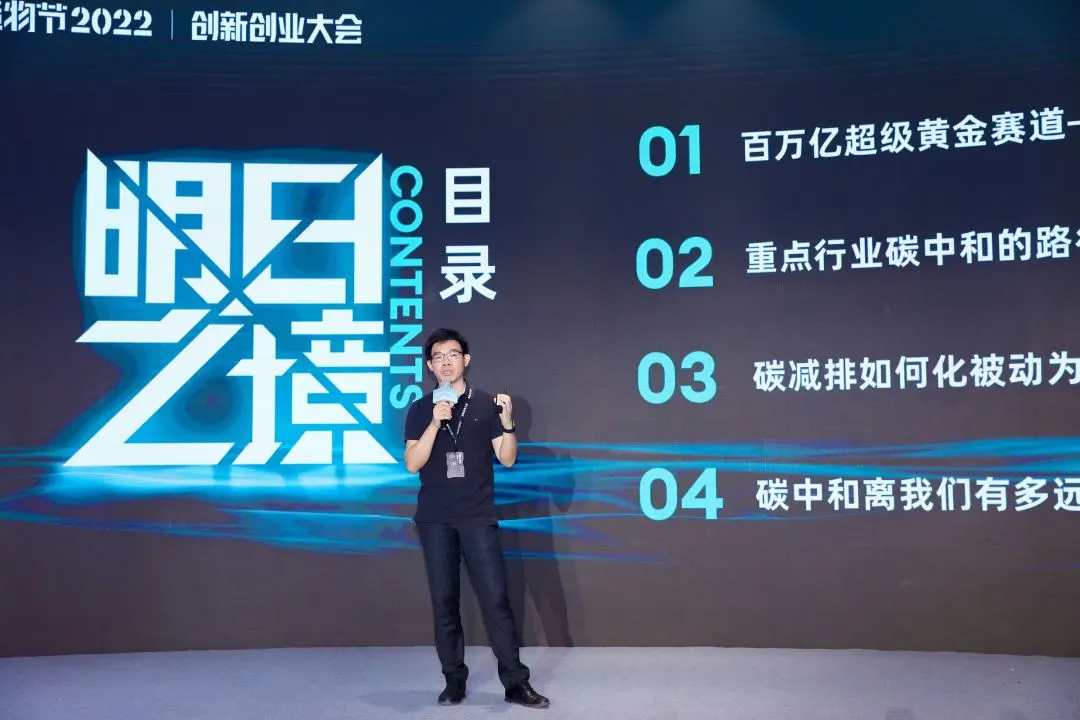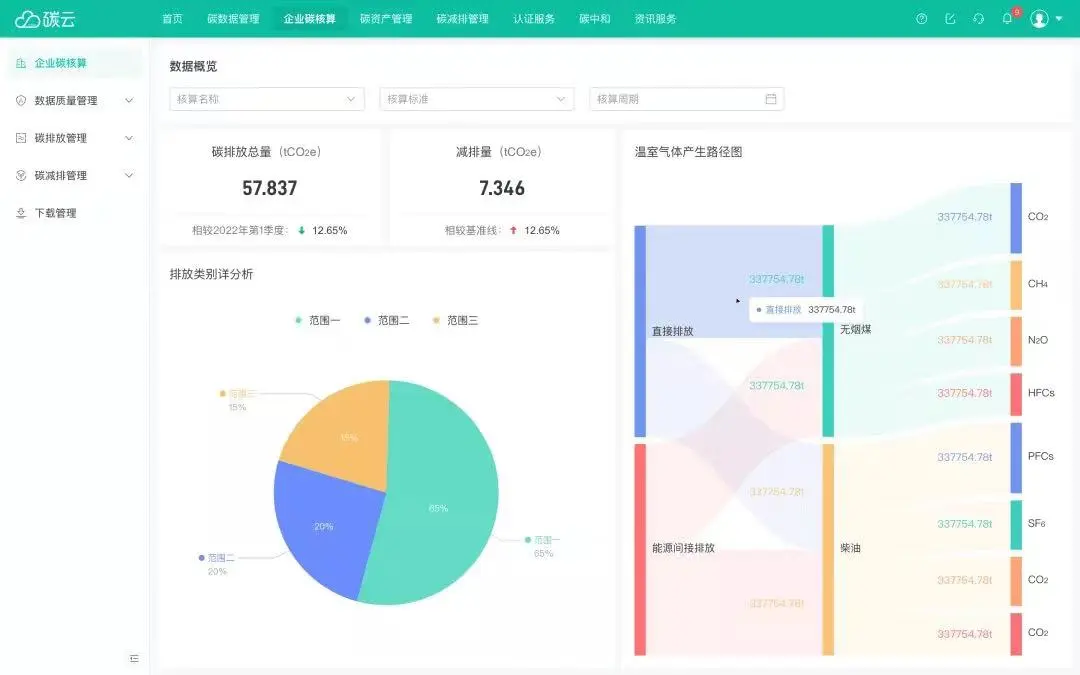
Scene from the "Innovation and Entrepreneurship Conference" at Taobao Maker Festival
Recently, the seventh Taobao Maker Festival opened in Guangzhou, adding an "Innovation and Entrepreneurship Conference" for the first time, aimed at all small and medium-sized entrepreneurs across the web. This year’s festival, themed "Tomorrow's Realm," brought together representatives from four new entrepreneurial tracks—new consumption, green health, modern technology, and content culture—to engage in face-to-face exchanges, debates, and discussions with top investment leaders, exploring the "power to transcend cycles." Carbonstop founder and CEO Lu Hui Yan was invited to attend and share insights on the topic "With the Rise of the Carbon Neutrality Trend, How Can Enterprises Seize the Opportunity?"

Carbonstop founder and CEO Lu Hui Yan at the forum
Since the Paris Agreement, carbon neutrality has become a global consensus. According to statistics from the China International Development Research Center's "Global Development Report," as of May 2022, 127 countries have proposed or are preparing to propose carbon neutrality goals. Among them, China pledged to the world on September 22, 2020, to peak carbon emissions by 2030 and achieve carbon neutrality by 2060.
Lu Hui Yan pointed out in his speech thattoday's world is full of uncertainties, but carbon neutrality is one of the few certainties, a clear path for China's development over the next 40 years. Tsinghua University and China International Capital Corporation (CICC) previously forecasted that over the next 30 years, China will invest around 140 trillion yuan in the carbon neutrality sector, positioning it as a super gold track worth trillions.
01
Practicing Carbon Neutrality: Actions Across Industries
Standing on the golden track of carbon neutrality and looking to the future, challenges and opportunities coexist. How should enterprises respond?
According to Lu Hui Yan, an estimated 1,000 Chinese enterprises have set carbon neutrality or carbon reduction goals. However, rapid implementation is key after setting these goals. To address this, Lu Hui Yan shared Carbonstop's advanced carbon neutrality methodology, CREOS, which stands for Calculating (quantifying), Reducing (reducing), Engaging (engaging), Offsetting (offsetting), and Spreading (spreading).
First, quantifying carbon emissions is always the most critical aspect of carbon emission management. The first step for enterprises to achieve carbon neutrality is to accurately calculate their carbon emissions across all dimensions. After setting carbon neutrality goals and calculating carbon emissions, enterprises should first focus on identifying carbon emission "hotspots" and implementing reasonable reduction measures, rather than immediately choosing offsetting and neutrality.
Besides reducing their own emissions, enterprises can also engage their ecosystem partners in reduction actions. In some cases, the reductions generated through engagement can exceed the enterprise's own emissions.
For unavoidable carbon emissions, enterprises can purchase renewable energy projects and engage in reforestation to offset and neutralize emissions, achieving "zero emissions." Finally, enterprises can share their carbon neutrality practices and achievements with society, promoting industry-wide and societal participation in reduction and carbon neutrality efforts.
To date, the CREOS carbon neutrality methodology has scientifically guided nearly 100 well-known enterprises, including Baidu, Alibaba, Tencent, Starbucks, SKP, and Hillhouse Capital, to practice carbon neutrality.

Carbonstop founder and CEO Lu Hui Yan at the forum
Lu Hui Yan believes thatinnovation and adapting to trends are the key keys for enterprises to seize opportunities in the context of the dual-carbon goals. Alipay Forest has driven carbon reduction through innovation, leveraging its traffic advantage to engage 600 million users in carbon reduction actions. Hillhouse Capital, as a leading Chinese investment institution, sees the potential in the dual-carbon policy, heavily investing in the carbon neutrality sector, becoming the first investment institution in China to achieve carbon neutrality and leading a new trend.
Additionally, the economic benefits of carbon reduction are a significant reason for enterprises to join the carbon neutrality movement. Many enterprises have benefited from proactive carbon reduction, such as Tesla earning $1.6 billion by selling carbon credits to automakers like GM and Ford; Apple profiting from developing renewable energy projects; and a manufacturing company securing billions in orders from a global cosmetics giant due to its excellent CDP rating.
02
Empowering Carbon Neutrality with Professionalism and Technological Innovation
As China's first provider of carbon management consulting and software solutions, Carbonstop has leveraged extensive practical project experience and technological innovation to promote carbon neutrality across five aspects: clothing, food, housing, transportation, and daily use.
From creating low-carbon/carbon-neutral products, organizing carbon-neutral conferences, to the recent popular personal carbon accounts, Carbonstop consistently uses technological innovation to bridge the gap between carbon neutrality and ordinary people.
Carbonstop's independently developed one-stop carbon management cloud platform—Carbon Cloud—covers multiple functional modules, including enterprise carbon accounting, product carbon footprint, supply chain carbon management, carbon asset management, carbon account platforms, online certification, and carbon neutrality services. By utilizing big data and AI technologies, Carbon Cloud connects the entire carbon management chain, meeting various carbon management needs of enterprises and enhancing their overall carbon reduction effectiveness, helping them move towards carbon neutrality.

"Carbon Cloud" Enterprise Carbon Accounting
Since its establishment in 2011, from starting to leading, Carbonstop has provided carbon management and carbon neutrality solutions to over 1,200 enterprises and institutions, including companies in the energy sector such as China Coal, CNOOC, and State Energy Group; leading internet companies such as Microsoft, Baidu, Alibaba, Tencent, ByteDance, Meituan, and JD.com; well-known consumer brands such as Starbucks, Chanel, and Zara; and financial institutions such as Mastercard, China Construction Bank, China UnionPay, and Hillhouse Capital, setting best practices for carbon reduction and carbon neutrality across different industries.
Carbonstop's mission is to make every product have a carbon footprint. Its goal is to digitalize and visualize ubiquitous carbon emissions, and to value them through carbon trading and other means. Lu Hui Yan stated that Carbonstop looks forward to collaborating with more entrepreneurs to create environmentally friendly products, enabling consumers to purchase innovative and fashionable low-carbon products, and transforming every individual's small efforts into a powerful force driving societal carbon neutrality.
